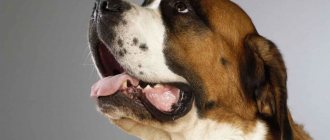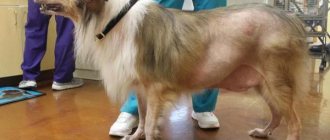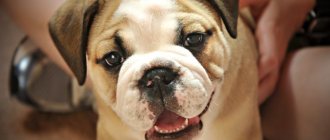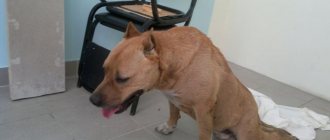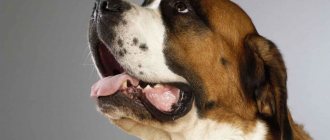Dog bad breath is not only disgusting to people, but it can also be a sign of a health problem.
Before you feed your dog mint to stop the stinky smell, take a moment to research the possible causes of bad breath and what you can do to treat and prevent it.
Oral hygiene and periodontal diseases.
The most common causes of bad breath in dogs are poor oral hygiene and periodontal disease. As in humans, plaque and tartar buildup can lead to the development of bacteria that cause bad breath.
If your dog doesn't like to chew and you don't brush his teeth regularly or don't brush his teeth at all, then the most likely cause of bad breath is plaque buildup.
Over time, poor oral hygiene can lead to periodontal disease.
Too much plaque and tartar can push the gums away from the teeth, opening new areas for bacteria to grow.
Not only does this inflame your dog's gums, but it can lead to tooth decay, infection, tissue destruction, tooth loss, and even pus formation.
Needless to say, this also leads to very, very bad breath.
The breath of a young puppy and a young dog smell disgusting
This unwanted pathology can affect not only adult pets, but also small dogs.
The factors are:
- Replacement of teeth. Small dogs (Spitz, Pekingese, Yorkie, Chihuahua, dwarf dachshund) have milk teeth that are difficult to loosen and do not fall out without the help of others. Tightly seated teeth violate the integrity of the gums, thus causing inflammatory processes. All this provokes a disgusting putrid smell from the mouth of the four-legged pet.
- Foreign bodies. A small puppy often plays and may not control himself during play, gnawing sticks or other objects into small pieces. The residue settles between the incisors, causing swollen gums and a bad odor.
- Leftover food. Food stuck in teeth will sooner or later decompose. If it is not removed and cleaned in time, the pet will also develop a rotten smell from its mouth.
Unpleasant Diet Habits
Dogs can be disgusting crap eaters. Sometimes their habits lead to bad breath.
If your dog regularly eats garbage or has access to decomposing animal remains, then bad breath may be the result of uncontrolled snacking.
Dogs also love cat litter, and a household with cats can offer too many temptations for a dog to resist. This is not only unpleasant, but also unhygienic.
As if cat poop isn't bad enough, some dogs eat their own feces or the feces of other dogs, a condition called coprophagia that causes bad breath in dogs and sometimes mild nausea in their fearful owners.
Why does my puppy's breath smell like coffee?
Puppies can have a variety of breath smells, but it's quite rare for their breath to smell like coffee. If your puppy's breath smells like coffee, you might want to check the coffee maker. Your puppy might curiously gulp down your supply of coffee and take a sip.
Please note that caffeine is harmful to pets. If you have confirmed that your puppy did in fact eat coffee, you should monitor him in the following hours.
Sometimes a combination of bacteria in your puppy's mouth can cause a coffee smell. This may be normal puppy breathing, but if in doubt, you can always consult your veterinarian.
© shutterstock
Diabetes
If your dog's bad breath smells sweet or fruity, you need to make an appointment with your veterinarian. Sweet fruity breath is a symptom of diabetes, a serious but treatable condition.
Talk to your veterinarian about other diabetes symptoms to watch for, such as increased drinking and urination, and make an appointment to have your dog examined.
Other symptoms accompanying mouth odor
A specific aroma may be accompanied by various symptomatic manifestations: weakness, weight loss or gain, changes in the pet’s activity, refusal to eat, severe thirst. Any deviation from usual behavior indicates that prompt consultation with a specialist is required.
What should alert the owner:
- profuse drooling;
- slurping while eating, awkwardness when grabbing food or toys;
- drowsiness and lethargy;
- the active pet stopped being mischievous, but the calm one, on the contrary, became too nervous;
- problems with urination and bowel movements;
- the coat becomes bad, dull, the skin flakes;
- unmotivated aggression appears;
- the pet refuses its favorite treats and adored games.
It is worth observing your pet for a day, maximum two. If one of the above symptoms is associated with halitosis, make an appointment with a veterinarian.
Liver disease
If your dog has really bad breath, is also vomiting, has no appetite, and has yellow gums, he may have liver problems.
Like kidney disease, liver problems can be a sign of a serious illness, and it is important that you take your dog to a veterinarian or emergency clinic as soon as possible.
Diagnosis of diseases
If your pet's breath smells like rotten meat, consult a doctor and get all the necessary tests.
Self-diagnosis is fraught with errors and incorrect treatment.
Pay attention to the accompanying symptoms and do not forget to talk about them at your appointment:
- strong smell of acetone (kidney problems);
- loss of appetite, yellowing of the mucous membranes and skin (liver disease);
- sweetish smell, similar to fruit (diabetes mellitus).
The pungent smell of rotten meat does not always hint at cirrhosis.
Animals belonging to hunting breeds love to pick up carrion. Keep a close eye on your pet during walks.
Treatment of bad breath in dogs
As important as it is to understand the reasons behind bad dog breath, we really want to know how to get rid of it.
Treating bad breath in a dog depends on the cause, but fortunately, there are quite a few treatment options.
If plaque, tartar, and periodontal disease are causing your dog's bad breath, the best thing you can do is make an appointment with your veterinarian to see if your dog is a good candidate for a dental cleaning.
Your veterinarian will run a blood test to make sure your dog can tolerate the anesthesia, and this is also an excellent time to rule out any other potential causes of your dog's bad breath.
During the cleaning, your veterinarian may have to remove loose or damaged teeth, depending on the extent of periodontal disease.
When it comes to unsupervised snacking, securing the litter and limiting your dog's access to nuisance outdoor finds such as the jockey will solve the problem.
Placing the litter box out of his reach is a simple solution that eliminates the consumption of cat feces unless the cats poop outside, and cleaning up immediately after the dog can help prevent coprophagia.
Diabetes, kidney disease, and liver disease are all conditions that require veterinary treatment. Once the underlying problem is resolved, your dog's bad breath will also disappear.
How long does a puppy's pleasant breathing last?
You should enjoy the pleasant smell of your puppy's breath while it lasts. Once your puppy's adult teeth grow, the sweet breath will begin to fade.
Just in time for the second teething, puppies will have to switch to dog food. And since milk is no longer their only diet, bacteria enter their mouth and digestive tract.
The ingredients in the dog food, as well as the dog's chewing habits, will create a different odor in the mouth.
Basically, as long as your puppy is on a milk diet, he will have a breath of heaven. However, it will last for a couple of months.
Preventing Bad Breath in Dogs
The easiest way to prevent your dog from having bad breath is to brush his teeth regularly. Brushing your teeth reduces plaque and promotes better oral hygiene, just like in humans, and with a little training most dogs will learn to enjoy brushing their teeth.
Giving your dog plenty of chew toys will help him take care of his teeth naturally.
Chewing prevents plaque and tartar buildup and relieves boredom, keeping your dog healthy and happy. Just make sure you choose chew toys that are appropriate for your dog's size and age.
Feeding your dog a quality, balanced diet, giving him plenty of exercise, and regular veterinary checkups can help prevent systemic diseases such as diabetes.
Plus, keeping your dog healthy helps prevent a variety of other health problems and can help your veterinarian identify the root cause of your dog's bad breath before it gets too bad.
In addition to dog toothpaste, there are other oral care products on the market, including special oral health diets, dental chews, and water additives. Talk to your veterinarian about the products they recommend.
Say goodbye to your dog's bad breath today by making an appointment with your veterinarian to discuss the possible causes of your dog's bad breath and treatment options.
As with most health problems, prevention is the best cure, so grab a tube of dog toothpaste and start brushing your dog's teeth at least once a day to prevent tooth decay.
External factors that provoke a nasty odor
There are other mediators that cause dog mouth stink. Fortunately, they are easy to correct.
What applies to external provocateurs:
- Eating protein treats. When deli meats are metabolized, a nitrogenous product is released, which causes a rotten smell. This phenomenon can be avoided if you reduce the amount of meat and other foods rich in protein in your diet.
- Food settling in the buccal space. Pieces of food stuck behind the cheeks can fester over time and create a rotten smell.
- Change of drink. If you stop giving your pet spring water and switch to chlorinated water, this can cause dysbiosis in the animal. The disease gives rise to the spread of an unpleasant odor.
- Unbalanced pet diet. To keep your pet's breath fresh, you need to switch to natural nutrition and higher quality food.
The above problems are not so serious and can be easily eliminated.
How to determine the cause?
It is extremely difficult to figure out on your own why your dog smells rotten. In this situation, it is recommended to immediately contact a veterinarian. If this is not possible, proceed as follows:
- Assess the general condition of the pet. If he eats normally, plays a lot, and willingly goes for walks, most likely the problem is in the oral cavity. If the dog shows anxiety, sleeps for a long time, and refuses to eat, the problem is in the condition of the internal organs. A consultation with a veterinarian is indicated.
- If you suspect dental problems, examine the animal's oral cavity. If he finds food stuck between his teeth or yellow plaque, you can deal with the problem yourself. If large foci of inflammation or tartar formation are observed in the mouth, you should consult a doctor without delay.
Remember that unqualified help in the presented situation can do even more harm than its complete absence.
If signs of severe pathology are detected, you will need to undergo a full examination by a veterinarian, take blood and urine tests, and do an ultrasound. The sooner you take such measures, the faster you can get rid of the disease.
Badly
The most likely reasons:
- Most often, bad breath occurs due to tartar . This is not a life-threatening problem, but plaque on teeth is not as harmless as it seems. Yes, this health problem will not take the dog’s life. But it can ruin it.
- A malignant tumor is another reason for the unpleasant odor from the mouth. Most often, dogs of the Boxer breed and others with a short muzzle get this disease. But this does not mean that owners of dogs of other breeds should exclude this reason.
- Maximum protein content in the diet.
- Putting food behind a dog's jowls if the animal has a short muzzle. Often, food that gets into the cheek space begins to smell very bad after some time and it seems that the aroma comes from the mouth.
- If your dog has to drink chlorinated water.
- Lack of balance in the diet.
- Your carelessness while walking
